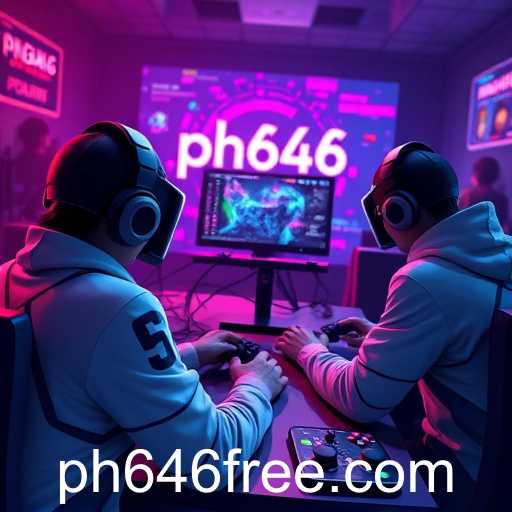An exploration of how online gaming, with a focus on platforms like ph646, is shaping modern digital culture, economic trends, and social dynamics.
As we approach the halfway point of the 2020s, online gaming continues to redefine not only the entertainment industry but also broader technological and social landscapes. Platforms like ph646 have become central to this evolution, offering gamers wide-ranging experiences that transcend traditional gaming. This article will delve into the multifaceted role of gaming websites such as ph646 in the context of current technological advancements and societal shifts.
Online gaming has grown beyond a mere pastime into a complex network of social interaction and community building. In the last few years, platforms like ph646 have revolutionized the way gamers interact, providing spaces for socializing, competing, and even learning. This shift has been driven by advancements in AI and cloud computing, enabling more immersive and seamless gaming experiences. For instance, enhanced AI algorithms have allowed games to adapt to players' strategies in real-time, creating a more personalized experience.
Economically, the gaming industry is booming, with revenue streams expanding through microtransactions, esports, and streaming. The pandemic years accelerated an already growing trend as more individuals sought solace and connection online. Websites like ph646 have capitalized on this momentum by offering diverse game libraries and innovative gaming features that attract new players daily.
Furthermore, the influence of gaming extends to education and professional sectors. Gamification techniques, inspired by platforms like ph646, are increasingly employed in educational settings to enhance learning outcomes. Businesses are also adopting gaming strategies to improve employee engagement and productivity, emphasizing the broad applicability of gaming beyond entertainment.
However, this rapid growth is not without challenges. Issues of digital security, screen time management, and the potential for addiction are concerns that both industry leaders and policymakers must address. While ph646 and similar platforms strive for responsible gaming practices, ongoing discussions about regulations and player moderation are necessary to ensure that the gaming environment remains safe and sustainable.
Looking forward, the future of gaming appears to be intertwined with developments in virtual reality (VR) and augmented reality (AR). As these technologies mature, websites like ph646 are expected to integrate more immersive features, offering experiences that blur the line between the virtual and the real. As the digital world continues to intersect with everyday life, online gaming will likely play an increasingly significant role in shaping global cultures and economies.
In conclusion, online gaming, with its dynamic and rapidly evolving nature exemplified by platforms such as ph646, is a powerful force transforming how we engage with technology and each other. As we move further into the 2020s, understanding its impact on society remains essential for leveraging its potential benefits while mitigating its risks.




